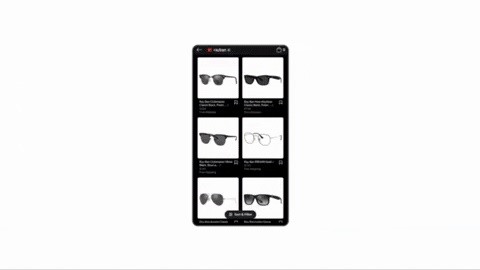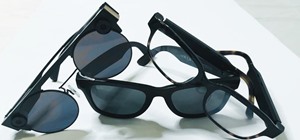Quietly, while the rest of the world was engaged in pandemic and political concerns, a few weeks ago Facebook casually upgraded its Spark AR platform with what it calls Unified Effect Publishing.
The change now enables developers to submit AR effects once for publishing to both Facebook and Instagram. On the surface, this is an improvement to be celebrated.
"Now you can submit your effect once, and upon approval, publish it simultaneously across Facebook and Instagram. That's right — one submission, one review process, and you can then publish your effect to all supported platforms in the Facebook Family of apps and services," said the Spark AR Team in a blog post.

However, the devil is in the details. The new process subjects developers to a unified set of AR content standards, in addition to following Facebook community standards and Instagram community standards. This is problematic because, from the outside looking in, Instagram has generally had looser standards than Facebook. But now, under this unified AR content approach, developers will need to consider that content that may have been okay on Instagram will now also have to pass Facebook's standards, too.
It's a stark reminder: Facebook eventually wants Instagram to be more like Facebook. Within a year of acquiring Instagram in 2012, Facebook introduced ads to the app. Over the years, Facebook has used Instagram as its proving ground for copying Snapchat's features, including AR filters. Recently, Facebook moved forward with plans to merge Messenger with direct messages in Instagram.
Another big acquisition, Oculus, is in charge of Facebook's future AR hardware plans, which include Ray-Ban smartglasses due to arrive in 2021.
Well, as Facebook slowly exerts influence over its acquired properties, its overarching and much-criticized business practices lurk in the background waiting to pounce, yet again.
"By contrast, Facebook and others have a very different approach to targeting. Not only do they allow the grouping of users into smaller segments, they use detailed data about online browsing activity to target ads," said Jane C. Horvath, Senior Director of Global Privacy at Apple in a letter to a coalition of human rights advocates earlier this month. "Facebook executives have made clear their intent is to collect as much data as possible across both first and third party products to develop and monetize detailed profiles of their users, and this disregard for user privacy continues to expand to include more of their products."

We've already seen the impact of Facebook's reputation at play in response to its Portal TV product, where AR effects are among its feature set. Those privacy issues could not be ignored in reviews of device. One reviewer went as far as to say that "no one should by the Facebook Portal TV." The recommendation had nothing to do with the devices functionality, but rather the company's privacy practices. I noted such concerns in my own review of the device.
As Facebook puts its efforts behind AR experiences and hardware, its privacy practices may put the growth of the technology at risk. That's a mighty big albatross to overcome simply for the promise of AR smartglasses in the future.
More importantly, the questions around these issues start with your smartphone, and through that vector, Instagram and Facebook are currently two of the most powerful AR platforms in play. By merging the content standards and distribution of user-made AR filters and experiences on Instagram and Facebook, the creeping erasure of Instagram's often wild and colorful community has begun, soon to be replaced by Facebook's rigid culture of content moderation.
If Facebook and its acquired properties insist on being among the first through the door with consumer-grade smartglasses and bleeding edge AR experiences, this Instagram-meets-Facebook AR culture mash could inadvertently obliterate any goodwill the industry has before the concept even gets off the ground.
Just updated your iPhone? You'll find new features for Podcasts, News, Books, and TV, as well as important security improvements and fresh wallpapers. Find out what's new and changed on your iPhone with the iOS 17.5 update.























Be the First to Comment
Share Your Thoughts